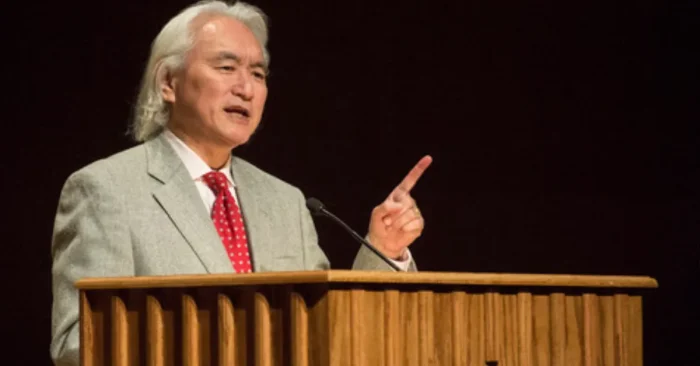Michio Kaku – Biography
Early Life and Education
Michio Kaku was born on January 24, 1947, in San Jose, California, to Japanese-American parents who were placed in internment camps during World War II. From a young age, Kaku showed an extraordinary interest in science and technology. As a high school student, he built a particle accelerator in his parents’ garage using parts he sourced from scrapyards. His scientific talent earned him recognition, including a scholarship to Harvard University. He graduated summa cum laude with a physics degree in 1968. Later, he earned a Ph.D. from the University of California, Berkeley, in 1972, focusing on quantum field theory. These early academic accomplishments laid the foundation for his future contributions to theoretical physics.
Academic and Scientific Career
Michio Kaku’s academic journey is marked by his pioneering work in theoretical physics. He is best known for co-founding string field theory, an extension of string theory that aims to unify all the fundamental forces of the universe, including gravity, under a single framework. Kaku’s research on multidimensional space and higher-dimensional universes has positioned him as one of the leading thinkers in the field. As a professor of theoretical physics at the City College of New York, he has spent decades teaching and inspiring students, while continuing to engage in research that explores the deepest questions about the cosmos and the nature of reality.
Books and Popular Science Writing
In addition to his academic achievements, Kaku has become one of the world’s most well-known science communicators. He has authored several best-selling books that make complex scientific topics understandable and exciting for the general public. His books include “Hyperspace,” “Parallel Worlds,” “Physics of the Impossible,” “The Future of the Mind,” and “The God Equation.” These works explore ideas such as time travel, wormholes, artificial intelligence, and the potential for human consciousness to transcend biological limits. Kaku’s writing style is engaging and imaginative, drawing readers into the mysteries of the universe while grounding those ideas in real scientific theory.
Media Appearances and Public Influence
Michio Kaku has become a familiar face on television and radio, often featured as an expert on science documentaries and news programs. He has appeared on the Discovery Channel, History Channel, BBC, CNN, and CBS, among others. In his radio program “Science Fantastic,” he interviews scientists, authors, and innovators to discuss breakthroughs across disciplines. Kaku’s communication style is known for its clarity and enthusiasm, helping to demystify science for millions of people around the world. Through these platforms, he encourages curiosity, critical thinking, and the belief that science can solve humanity’s most urgent problems.
Vision for the Future
A major theme throughout Kaku’s work is his optimistic outlook on the future of humanity. He envisions a world where science and technology lead to advancements such as interstellar travel, brain-computer interfaces, and the merging of biological and digital intelligence. In his book “The Future of Humanity,” he discusses the long-term survival of our species through space colonization and terraforming. Kaku also examines the risks and ethical dilemmas posed by artificial intelligence and genetic engineering. He advocates for the responsible use of technology to improve quality of life and address challenges such as climate change, disease, and resource scarcity.
Personal Life and Values
While Kaku is widely celebrated for his public persona, he is also known for his humility and commitment to education. He is passionate about inspiring young people to pursue science and often speaks at schools and public events. Kaku frequently references the influence of his parents and upbringing, particularly their resilience and dedication, as shaping his values. Despite his global recognition, he maintains a grounded lifestyle, living in New York with his wife and children. His personal mission includes bridging the gap between advanced science and everyday understanding, making him a rare figure in both academic and public spheres.
Legacy and Recognition
Michio Kaku’s legacy is defined by his dual roles as a scientist and science communicator. He has played a key role in advancing theoretical physics while making scientific knowledge more accessible. His books and media work have sparked curiosity in countless readers and viewers, encouraging people to see the world through the lens of discovery. As one of the most influential modern physicists, his contributions extend beyond the classroom and laboratory, shaping public understanding of science and technology. Kaku continues to be a powerful voice for the future, urging society to embrace innovation and scientific thinking in tackling global challenges.
Frequently Asked Questions
What is Michio Kaku best known for?
Michio Kaku is best known for his work in string theory and for popularizing science through books, TV shows, and public speaking.
What books has Michio Kaku written?
Some of his best-known books include “Hyperspace,” “Physics of the Impossible,” “The Future of the Mind,” and “The God Equation.”
Is Michio Kaku a practicing scientist?
Yes, Kaku continues to teach theoretical physics and contribute to scientific research, particularly in string field theory.
Has Michio Kaku appeared on television?
Yes, he frequently appears on TV and radio programs, where he explains scientific concepts to a broad audience.
What are Michio Kaku’s views on the future?
He believes in a future shaped by technology, including space exploration, AI, and medical breakthroughs, all guided by ethical science.






